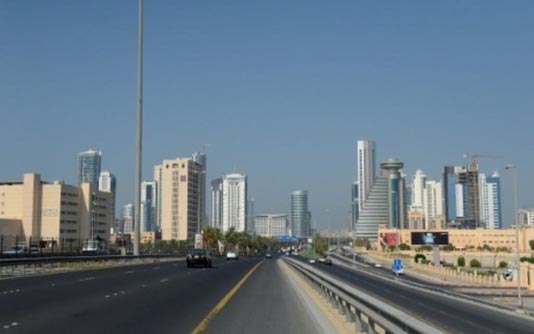NICOSIA, July 26, 2019 (BSS/AFP) – Sunni-ruled Bahrain seeks to rebrand
itself as an open and tolerant state after long being criticised by
international rights groups for its crackdown on Shiite protesters, experts
said.
Shortly after hosting a US-led international workshop on the Palestinian
economy, Bahrain announced last week it would host a global security
conference following a series of incidents involving tankers in the Gulf.
The same day, the kingdom — the smallest of the six Gulf countries — made
headlines when Israeli Foreign Minister Israel Katz said he had met with his
Bahraini counterpart, Sheikh Khalid bin Ahmed Al-Khalifa, in Washington.
“The attempt to host international forums, such as the Palestine workshop,
while reaching out to Israel, is an attempt to project tolerance and
openness,” Andreas Krieg, a professor at King’s College London, told AFP.
“While the image of the liberal and open-minded Bahrain has taken a massive
hit since 2011, it is now trying to return to an image of tolerance.”
According to Simon Henderson, a researcher at the Washington Institute for
Near East Policy, the meeting between Katz and Al-Khalifa — whose countries
do not have diplomatic relations — “gets headlines” and “plays well” in
Washington, which has strong ties to both Israel and Bahrain.
Located between regional rivals Saudi Arabia and Iran, Bahrain has been
gripped by bouts of unrest since 2011 when authorities cracked down on
Shiite-led protests demanding political reform.
– ‘Undermined’ –
All opposition groups have since been banned and disbanded, while hundreds
of protesters have been jailed and almost 1,000 Bahrainis have had their
citizenship revoked, according to rights groups.
“Bahrain has continued to demonstrate a zero-tolerance policy towards any
dissent or opposition. Virtually all of Bahrain’s religious and secular
opposition members are in exile or behind bars,” said Aya Majzoub, Bahrain
researcher at Human Rights Watch.
“It is particularly concerning that Bahrain has now escalated its crackdown
and began systematically targeting critical online posts too,” she said.
“If there was any room — no matter how small — for speech or activism
online before, that space is now rapidly shrinking.”
But Bahrain has repeatedly denied taking discriminatory measures against
its Shiite citizens and accused Iran of training and backing demonstrators to
try to topple the Manama government.
Tehran denies the accusation.
“Bahrain remains very concerned about the Iranian threat and Tehran’s
influence on its Shiite citizens,” said Henderson.
He added that revoking citizenship has been a way to undermine sympathy for
Iran but this policy “may be under review” following increased criticism.
In April, King Hamad ordered the citizenship of 551 Bahrainis be
reinstated.
Two months later, an appeals court overturned a decision to strip the
citizenship of 92 Shiites jailed for plotting to form an Iran-linked “terror”
group.
But jail terms against those accused of “terrorism” were upheld.
According to Krieg, the image of tolerance that Manama is trying to project
“is undermined by the ongoing oppression of civil society”, especially
Shiites.
– Against Iran –
Bahrain gained international attention when US President Donald Trump’s
son-in-law Jared Kushner launched a Middle East initiative during the
Palestinian economic workshop in Manama in late June.
It was the first public event to address Washington’s long-awaited peace
plan.
The meeting also came amid increased tensions in the Gulf, with Washington
blaming Tehran for being behind a series of tanker attacks in and near the
strategic Strait of Hormuz, charges Iran denies.
Bahrain said last week that it would co-host with the US a conference on
“maritime and air navigation security”, without giving a date.
Neil Partrick, a London-based Middle East analyst, said Bahrain was seeking
to “enhance its security by making itself indispensable”.
The security conference in Bahrain would be the first international
gathering to discuss regional tensions that ignited in May 2018, when Trump
unilaterally withdrew the US from a landmark 2015 nuclear deal.
“Bahrain wants international and regional allies to aid it against Iran, a
risky strategy but one made easier when you host the US Fifth Fleet and a UK
naval base,” said Partrick.



